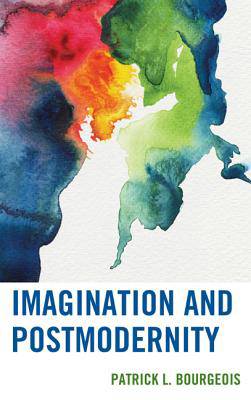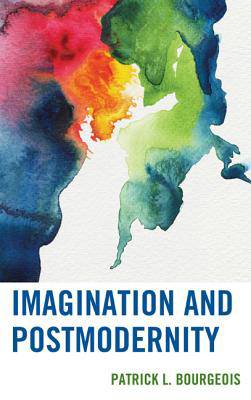
- Afhalen na 1 uur in een winkel met voorraad
- Gratis thuislevering in België vanaf € 30
- Ruim aanbod met 7 miljoen producten
- Afhalen na 1 uur in een winkel met voorraad
- Gratis thuislevering in België vanaf € 30
- Ruim aanbod met 7 miljoen producten
Zoeken
Omschrijving
Imagination and Postmodernity addresses the role of the imagination in philosophy today. By focusing on philosophy at the boundary of reason with constant reference to Kant's view of the boundary-limit, it is possible to advance a viable alternative to deconstructing the imagination. Patrick L. Bourgeois puts forth the claim that by refocusing the imagination in the postmodern conversation, a far-reaching contemporary position can be reached that reestablishes the position of the humanities as central against the anti-humanism of deconstruction. This work addresses some of the challenges and problems that emerge in conflicting positions within contemporary philosophy, including a concentration on the role of the imagination in the work of Paul Ricoeur in contrast and in opposition to its role in such postmodern thinkers as Derrida and Lyotard. This treatment requires going back to the role of the imagination in the period of Kant and his immediate followers in order to clarify the various ways of seeing the imagination then and now, for the role today is anticipated in the nineteenth century. Finally, this work, as a creative appropriation of the position of Paul Ricoeur, presents a role for the imagination today that is more encompassing than most thinkers allow for.
Specificaties
Betrokkenen
- Auteur(s):
- Uitgeverij:
Inhoud
- Aantal bladzijden:
- 184
- Taal:
- Engels
- Reeks:
Eigenschappen
- Productcode (EAN):
- 9780739181898
- Verschijningsdatum:
- 5/09/2013
- Uitvoering:
- Hardcover
- Formaat:
- Genaaid
- Afmetingen:
- 160 mm x 236 mm
- Gewicht:
- 544 g

Alleen bij Standaard Boekhandel
+ 308 punten op je klantenkaart van Standaard Boekhandel
Beoordelingen
We publiceren alleen reviews die voldoen aan de voorwaarden voor reviews. Bekijk onze voorwaarden voor reviews.











